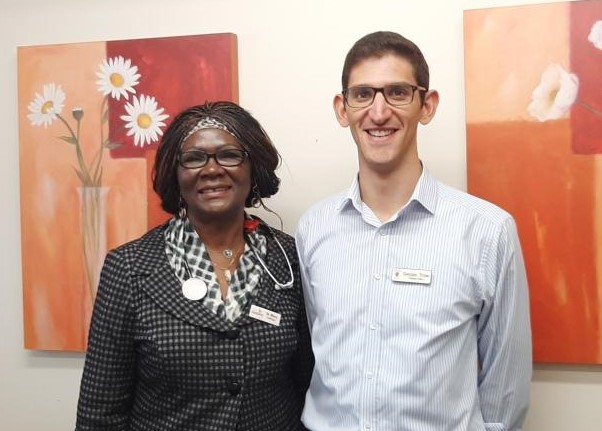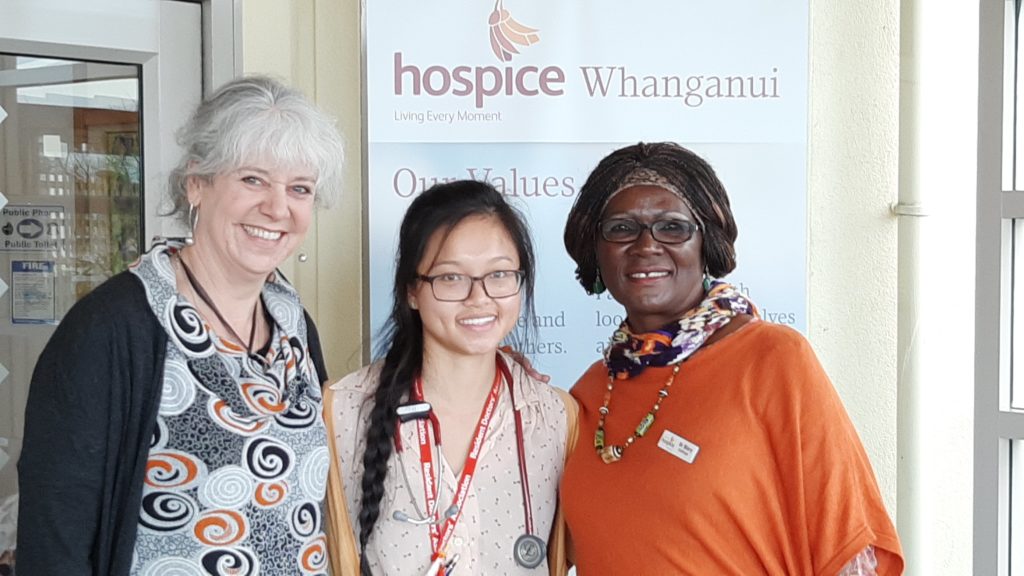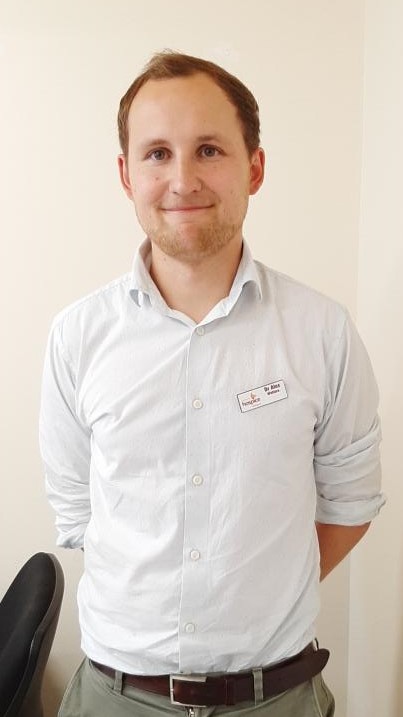While the title might be reminiscent of an Australian ’70’s soap opera, we’d like to assure you that that’s where the similarity ends!
During the year we have the opportunity to host a number of medical students and RMO’s onsite at Hospice, for placements of differing periods of time. All of the “Young Docs” we have had the pleasure of hosting in the last several years are at different stages in their careers, and during the last six months, we have been fortunate to have some of them join us once again.
Hospice Medical Officers Dr Mary Andhoga and Dr Ilse Hofmeyr have spent time with our Young Doctors during their time with us and they have shared their perspectives. For us at Hospice it’s wonderful to see younger medical students and medical officers favouring and even choosing palliative care early in their careers. They bring an interesting dimension to how we deliver that care.
In their brief narratives our “Young Docs” have explained what they have learned and enjoyed about working in the palliative environment. We would like to acknowledge that their being here has been an absolute pleasure for us and that the relationships have been entirely symbiotic; of benefit to our staff, patients and families alike.
Georges Tinawi – Medical Student, Otago
“During my General Medicine run, I was fortunate enough to spend a short time with the team at Hospice Whanganui. The team were fantastic, and I was immediately welcomed into the unit and gained valuable insights into palliative inpatient care. I worked alongside them in admitting new patients, reviewing plans for symptom control, attended the MDTs and learnt about the processes of caring for patients in the community. It was a fantastic experience and I was grateful for their kindness and willingness to teach me. I believe my Hospice experience was a valuable learning opportunity just prior to my graduation – I picked up new knowledge that I can put into use as I begin work on the wards, and gained a further appreciation for the incredible work the palliative team do in the Hospice inpatient environment.”

Shona Jian – RMO, NZ
“In our journey as House Officers (first and second year junior doctors), we rotate through a number of specialties which is vital in developing our breadth of clinical practice and gaining an appreciation of various specialties. Rotations include community placements, which enhance our awareness of services available beyond the hospital walls, and in turn, better colours our understanding of the interplay between community and hospital services.
I was fortunate enough to be assigned Hospice as part of a four week rotation – four weeks that absolutely flew by! While everyday presented a new learning opportunity, several themes resounded throughout my rotation, two of which were teamwork and effective communication. The multidisciplinary team at Hospice work collaboratively in a seamless fashion to provide truly holistic patient-centred care. Psychosocial and spiritual wellbeing are regularly addressed in addition to any physical symptoms, with various members of the multidisciplinary team contributing their specific expertise to an individual’s care to enhance their overall sense of wellbeing.
While part of effective communication involves delivering clear and complete information, it also entails the ability to listen and receive information. I am grateful for having witnessed these skills, especially the latter, emulated adeptly by the Hospice team, in particular the Medical Officers whom I worked most closely with. The ability to truly listen, to offer people time to express themselves, and to sit comfortably in companionable silence can seem so simple but provide much solace.
It was a privilege to work with all the incredible Hospice staff, who were so warm and welcoming into their team. It was an invaluable experience from which I will take numerous skills into my future clinical practice.”

Alex Wallace – RMO, UK
“I am a UK-trained junior doctor and I moved here to Whanganui to work in Hospice in September this year. In the UK, I had done a number of clinical rotations during my foundation training, followed by spending a year working in medical education at the University of Bristol. During my clinical rotations I developed a keen interest in palliative care. I feel this was because of some of the rewarding experiences I had during my hospital and general practice rotations, and also some inspiring teaching I received from palliative care specialists in this time. I continued this interest the following year by running simulation training for some of the final-year medical students to help prepare them for caring for dying patients.
Before I applied for internal medical training, I decided I would like to further explore this interest, and this – aligned with a longstanding desire to work abroad – lead me to apply for the job here in Whanganui. So far, this decision continues to exceed expectations.
Since being here I have been challenged clinically and professionally, all the while supported by the excellent team here at Hospice. I have learned a great deal already with regards to theoretical and practical aspects of palliative care, but I have also learned about moving to a new place, understanding new cultures, and caring for patients in an environment unlike any I had worked in previously. My favourite aspect of this job when compared to my previous medical placements, has been having both the time and encouragement to get to know patients and build a relationship with them; something that sometimes falls by the wayside when doing shift work in a busy hospital with a rapid turnover of patients.
For all the above reasons, I look forward to working, learning and developing over the next 6 months here!”

